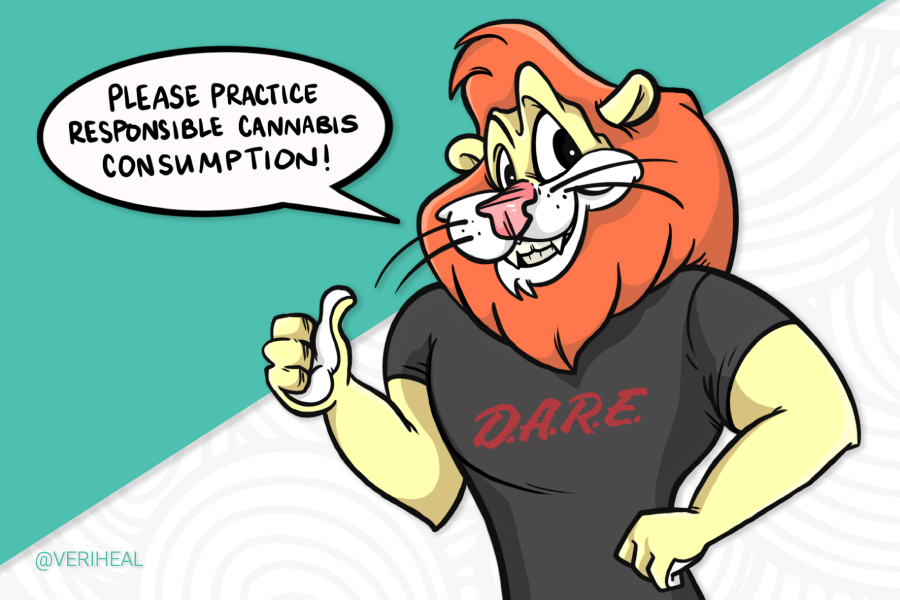It’s an unfortunate truth that cannabis is one of the most misunderstood substances around. One need look no further than the fact that cannabis has long been classified as a Schedule I substance despite its known medical value and tremendous potential for undiscovered medical benefits. Cannabis has struggled to gain widespread legal and cultural acceptance because of a host of false beliefs about what it is, the effect it has on the body, and its potential for harm. But nothing is more important than having an accurate understanding of any substance you choose to use. So let’s examine some cannabis myths you may have heard and shine a light on the truth.
1. Cannabis is a Gateway Drug
Fearmongers and advocates of the War on Drugs often warn that cannabis is a gateway drug—that the use of cannabis will lead to the abuse of more dangerous narcotics. The idea behind this myth is that cannabis use will affect the neural pathways in the brain, setting the user up to crave other drugs.
The truth is there’s just not much science to support this idea. We have seen some individuals move from cannabis use to the use of other drugs, of course, but there are a number of possible explanations for that pattern, and many others don’t follow that trajectory at all. A study conducted in Japan in 2012 revealed that over 80% of substance users did not use cannabis first.
2. Cannabis is Not Addictive
Veriheal supports responsible cannabis use. Most users probably won’t become addicted to cannabis, but it is something that can happen, so it’s best to go in with your eyes open. Copious quantities of cannabis consumed over a long period of time will lead to differences in brain function. You might find it difficult to control how much you smoke during a given session, or you might find that your emotions or ability to move through life are tied to cannabis use.
You can prevent addiction by monitoring yourself. Plan how much cannabis you’re going to have before you begin, and when you’ve reached that amount, stop. It’s also a good idea to take days off, if you’re not using it medically, to let your head clear.
3. Smoking Cannabis Causes Cancer, Just Like Cigarettes
Okay, this myth is a little more complicated. Many people tend to believe that smoking a joint is just as bad as smoking a cigarette. Others believe that smoking a joint is totally safe and fine and toxin-free.
The truth lies somewhere in the middle. Inhaling smoke is not good for your lungs, regardless of whether that smoke comes from a cannabis plant or a tobacco plant. But it is true that cigarettes and tobacco have generally been treated with chemicals that pure cannabis hasn’t. This is why you should consider avoiding mixing the two or using blunts. It’s also true that most cannabis smokers—even regular smokers—don’t inhale as much smoke as cigarette smokers do.
If this is something that concerns you, try a vape or a cannabis edible and your smoke inhalation will drop to zero!
4. Cannabis Rots Your Brain
If you grew up in the 1980s, or if you use YouTube to look up hilarious commercials from that era, you’ve probably seen the one where the man fries an egg to show you what happens to your brain on drugs. Any questions?
Here’s an answer. Cannabis doesn’t fry your brain. Studies have shown several effects of cannabis on the human brain, but destroying brain cells isn’t one of them. A longitudinal study conducted over a 25 year period indicated that regular cannabis use might lead to a decline in memory function, but other studies have found no conclusive difference. Used in moderation, though, cannabis has proven to stimulate the brain’s Endocannabinoid System and improve cognitive performance.
5. States that Legalize Cannabis Have Higher Crime Rates
In fact, the opposite of this myth is true. Studies have shown that cannabis consumption is not significantly linked to crime, and legalizing cannabis removes a whole category of criminal acts, so the crime rate actually tends to drop.
It happened in California. Medical cannabis was legalized in 1996, and since then the crime rate in the state has dropped by an incredible 20 percent—an impossible figure to ignore. This strongly suggests that legalizing cannabis frees up police to address other criminal issues, as well as eliminating the illegal market for cannabis itself.
Like anything else, cannabis has both great and unfavorable aspects to it, and you’re best served by knowing the truth as thoroughly as possible so you can safely and responsibly integrate it into your life.
Author, Share & Comments
















